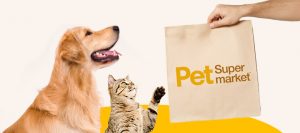In winter, the danger is sometimes where you least expect it and can reside in a plant left within easy reach of our four-legged friends.
There are thus many toxic plants for the dog.
This is particularly the case of mistletoe, holly, hyacinths and poinsettia, all these decorative plants that adorn our interiors during the winter period. They are all very dangerous for our animals if they ingest them.
Mistletoe, holly and hyacinths usually cause moderate digestive problems. Still, mistletoe can cause severe heart and nervous problems if its berries are swallowed heavily, or its stems or leaves are chewed.
The poinsettia, or Christmas star, can cause eye, digestive or skin irritation.
In winter, you should also beware of poisonous plants that your dog might swallow in the garden or when walking outside. In particular, be careful that it does not bite into chestnuts or acorns. These fruits, which are found in large numbers on the ground in the fall and throughout the winter, are also toxic to your pet.
Cold
Although dogs have a reputation for being much less cautious than us humans, the winter cold can also damage the health of our beloved furballs.
Small dogs, short-haired dogs, skinny dogs, older or very young dogs can be much more sensitive to the cold than you might think. The risk is that the cold weakens their body and makes them much more vulnerable to winter viruses.
So remember to protect them from the cold by equipping them with a coat for walks and covering their beds with a warm blanket at home.
Also read: are dogs resistant to cold?
Darkness
In winter, the days are shorter, and the light sometimes decreases at the risk of making your dog not very visible to cyclists and motorists. Therefore, the risk of a traffic accident is increased in winter, mainly if your dog is used to walking without a leash in areas where vehicles may circulate.
More than ever in winter, remember to keep your dog on a leash in risky places and consider equipping your dog with a fluorescent collar or a flashing light that you can attach directly to his collar. You can also provide it with clothes with fluorescent headbands. Doing so will make it much more visible and prevent the risk of an accident.
Anti-freeze
Poisoning from the ingestion of ethylene glycol, an anti-freeze additive found in particular in coolant used in automobiles still kills many canines every winter. In addition to digestive and nervous disorders, this intoxication can lead to kidney damage, which can be fatal for the dog. You have been warned: never leave this kind of chemical product within reach of your dog’s muzzle!
My dog is intoxicated: what to do?
When a dog has ingested a toxic substance, the 3T rule applies:
T for Time: don’t wait to act. In general, the sooner you act after ingestion, the more likely you are to limit the consequences of poisoning.
T for Phone: Call your veterinarian as soon as possible or a veterinary poison control centre. To do this, don’t wait for your dog to show symptoms of poisoning and don’t try anything without the advice of a veterinarian. Grandmother’s remedies making the dog vomit or giving milk can make the situation worse!
T for Toxic. Gather all the information the veterinarian needs to qualify the poisoning: the precise nature of the product, the amount ingested and the Time of ingestion if you know them.
Road salt
In winter, freezing temperatures and using road salt can irritate your dog’s pads. Protecting them is therefore essential! Take care to rinse and dry them each Time you return from a walk. You can also strengthen the horn of its pads by applying a tanning solution.



